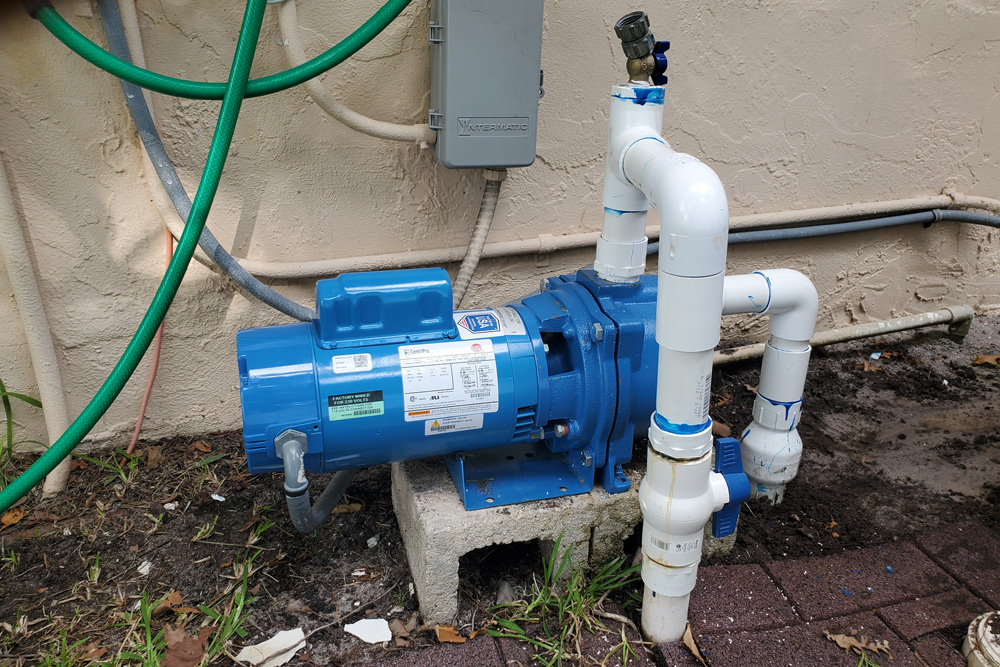Cutting-Edge Water Filtration Systems: Promoting Healthier Living Settings
Cutting-Edge Water Filtration Systems: Promoting Healthier Living Settings
Blog Article
Understanding the Key Elements of Effective Water Filtration Equipments

Value of Water Filtering Solution
Water filtering systems play an essential role in ensuring accessibility to safe and tidy drinking water by effectively eliminating contaminations and impurities. These systems are important in dealing with the expanding problems over water top quality and the prospective health and wellness threats associated with taking in infected water. By making use of numerous purification systems such as reverse osmosis, activated carbon, and UV sanitation, water filtering systems can efficiently remove damaging substances like microorganisms, viruses, hefty steels, and chemicals from the water.
Furthermore, water filtering systems help to enhance the taste and odor of water by removing chlorine, debris, and various other pollutants that can influence its quality. Water Softeners. This enhancement in water quality not just makes it a lot more palatable however likewise motivates individuals to consume an appropriate quantity of water daily, promoting much better hydration and overall health
Kinds Of Purification Parts

Physical filters are designed to physically strain out impurities from the water. These filters can be made from products like ceramic, carbon, or even sand, and they work by trapping bits larger than the filter's pores as water goes through.
Chemical filters utilize various chemical procedures to remove impurities from the water. Examples consist of turned on carbon filters, which adsorb contaminations, and turn around osmosis membrane layers, which utilize pressure to different impurities from the water.
Organic filters utilize living microorganisms like microorganisms or algae to damage down organic matter and toxins in the water. These filters are usually utilized in wastewater therapy plants or natural water filtration systems.
Understanding the different kinds of purification elements is important for picking one of the most appropriate water purification system for details filtration demands.
Function of Debris Filters
Sediment filters play a critical function in water filtering systems by successfully catching strong bits put on hold in the water. These filters are usually the initial line of protection in a purification system, look these up removing larger particles such as sand, silt, dust, and rust before the water moves through finer purification stages. By capturing these sediments, the filters avoid them from reaching downstream parts, thus extending the lifespan and performance of the whole system.
Overlooking this maintenance can lead to obstructing, decreased water flow, and endangered filtration performance. Overall, debris filters are vital elements that contribute substantially to the efficiency of water purification systems.
Duty of Activated Carbon Filters
Playing a vital duty in water filtration systems, turned on carbon filters are instrumental in eliminating impurities and pollutants from the water supply. These filters are created to adsorb and catch a large range of toxins, consisting of chlorine, unpredictable natural substances (VOCs), pesticides, and herbicides. The turned on carbon material has a big area, enabling the efficient capturing of pollutants via a process called adsorption. As water goes through the filter, the turned on carbon holds and attracts onto the pollutants, making sure that the water that comes out on the various other side is cleaner and safer for intake.
Activated carbon filters are highly effective at improving the taste and odor of water by minimizing chemicals that can affect its quality. Due to their convenience and integrity, turned on carbon filters are a key component in making sure that water is cleansed to the highest possible requirements prior to getting to customers.
Comprehending Reverse Osmosis Equipments
Reverse osmosis systems are sophisticated water filtering systems that utilize an innovative procedure to eliminate pollutants and contaminations from alcohol consumption water. These systems function by using pressure to the water, requiring it through a semi-permeable membrane layer. continue reading this This membrane layer acts as a barrier, permitting just distilled water particles to travel through, while blocking bigger molecules such as minerals, chemicals, and various other impurities. Therefore, the water that comes out on the other side is substantially cleaner and much safer for consumption.
One trick advantage of reverse osmosis systems is their capability to get rid of a wide variety of impurities, including heavy metals, liquified infections, solids, and germs. This makes them highly efficient in enhancing the overall top quality and security of alcohol consumption water. Furthermore, reverse osmosis systems are reasonably low-maintenance and can be read this article installed under the sink or in a main filtration system, giving practical accessibility to tidy water throughout the family. Generally, comprehending just how reverse osmosis systems work can help people make informed decisions regarding their water filtration demands.
Verdict
In conclusion, effective water filtering systems are important for making sure secure and clean drinking water. The crucial parts of these systems consist of debris filters, triggered carbon filters, and reverse osmosis systems. By comprehending the feature and role of each part, individuals can make enlightened decisions when choosing a water filtering system. It is very important to prioritize the top quality of water in order to promote overall wellness and wellness.
Water filtration systems play an essential role in making certain access to safe and clean drinking water by successfully getting rid of pollutants and impurities. By making use of various filtration mechanisms such as reverse osmosis, turned on carbon, and UV sanitation, water purification systems can effectively get rid of damaging substances like bacteria, infections, hefty metals, and chemicals from the water supply.
Debris filters play an important role in water filtration systems by successfully catching solid particles suspended in the water (Water Filtration Systems).Playing an important function in water purification systems, activated carbon filters are instrumental in eliminating pollutants and impurities from the water supply.Reverse osmosis systems are advanced water filtering systems that utilize a sophisticated procedure to remove pollutants and pollutants from alcohol consumption water
Report this page